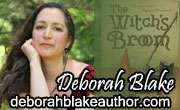
I am looking forward to the final episode of Jonathan Strange & Mr Norrell on Sunday (I think it's begun in the States more recently). It's been fun seeing an 'alternate' history of magic, though I will be sad to see it end. It got me thinking about a period in history that leads to a lot of confusion. When people say 'witch hunts' most people still seem to think of the Middle Ages, though the worst years were part of the Early Modern era, sometimes known as the Renaissance (a much disputed term for a variety of reasons). While many see the dividing line as the Reformation, the roots of that change can be see in Wycliffe and the Lollards in the 14th century. I tend to see Gutenberg's innovation as a technological change, though even there printing existed before his moveable type -- but the speed of the technology has all kinds of impacts as we know in the internet age.
We may not think of magic as technology, but all knowledge is technology. A revolution in technology may be regarded as good or bad or something in between, but it usually hard to deny once it happens. A big change happened in the history of magic that had a huge impact that leads to the widespread witch hunts of the Early Modern era (and on into the so-called Age of Enlightenment). For background, I highly recommend you get Michael D. Bailey's Battling Demons: Witchcraft, Heresy, and Reform in the Late Middle Ages. Perhaps easier to obtain is his briefer essay, 'The Feminization of Magic and the Emerging Idea of the Female Witch in the Late Middle Ages' (available via Project Muse in many libraries).
...














